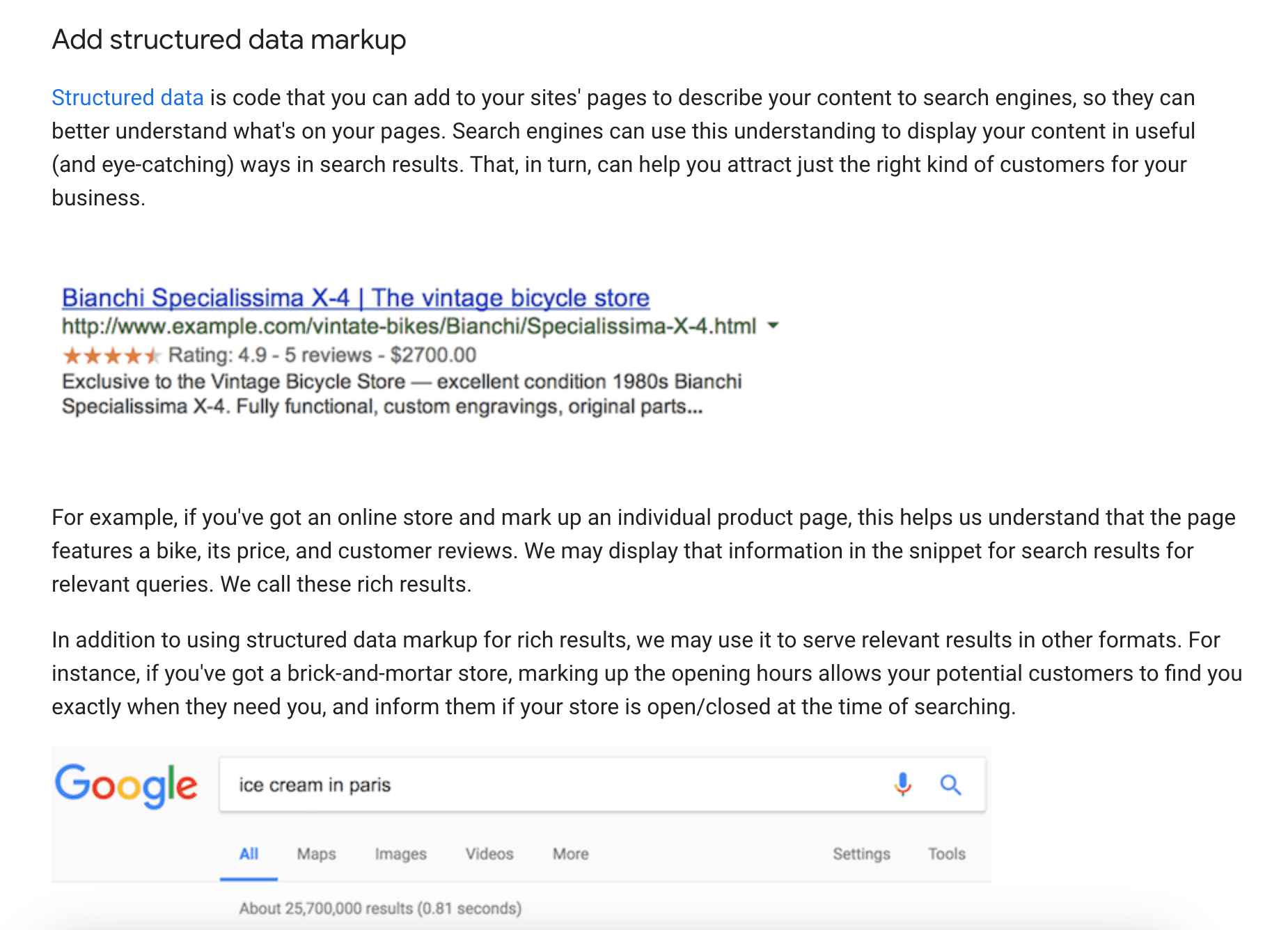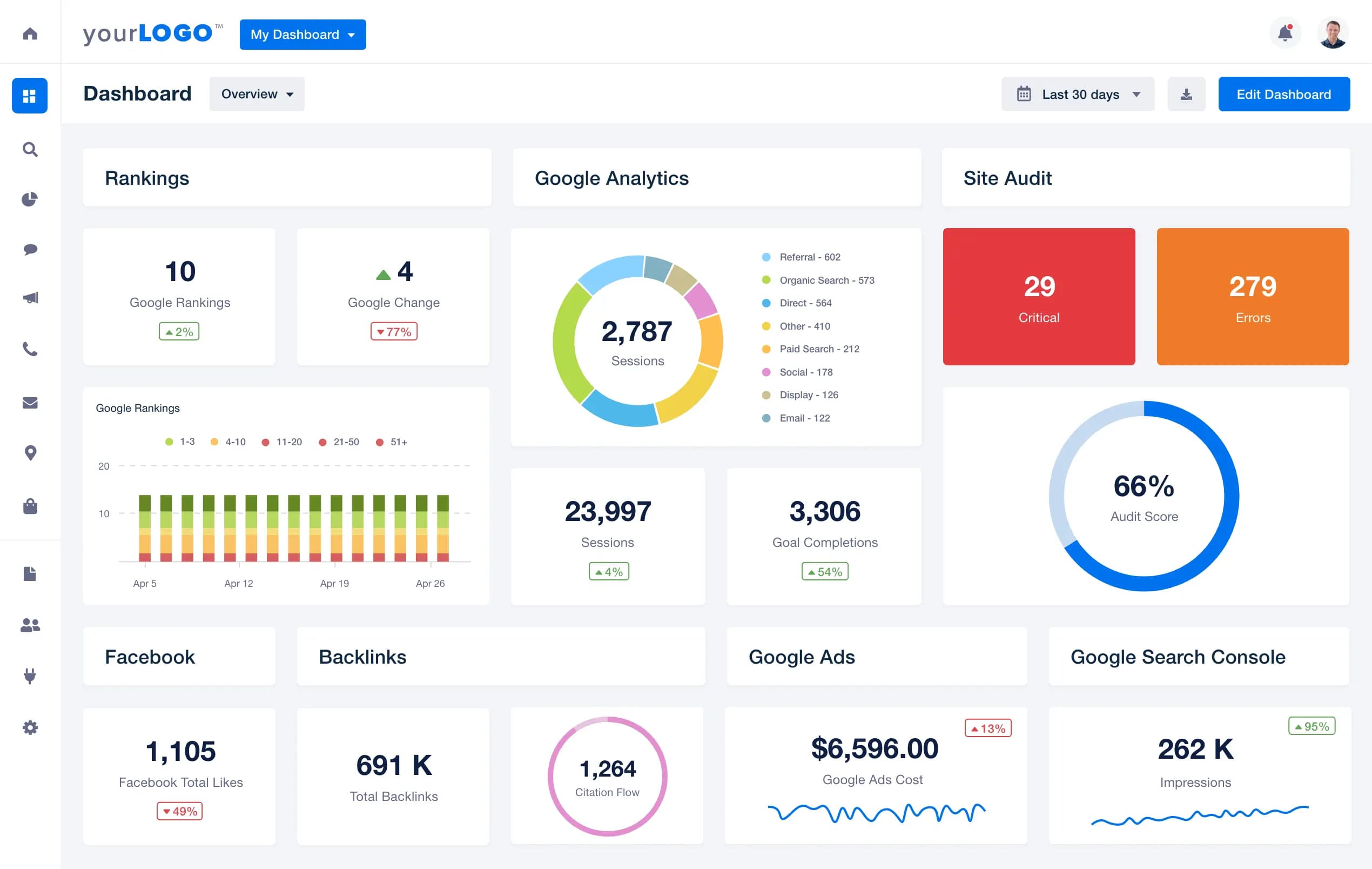Table of Contents
QUICK SUMMARY:
Dig into some of the best SEO tutorials from industry leaders like Nick Eubanks, Backlinko, Majestic, and Matt Diggity. This collection, perfect for SEO beginners and advanced marketers, provides actionable strategies for improving search rankings. Gain valuable insights from these trusted sources to enhance your SEO expertise.
As a beginner at SEO, it gets quite overwhelming. There's an overload of information to filter through and it's often very technical and complicated at first. You're not alone.
The thing is, the basics of SEO are relatively simple: start with keyword research, create high-quality content that's also link-worthy, optimize the website, and use SEO reporting software to track progress. You do not need to spend thousands of dollars on courses and conferences to learn the "SEO Secrets." However, an SEO tutorial can help get you started.
There are plenty of high-quality and free SEO tutorials online, and we'll cover some of the most popular ones.
Whether you're looking to do SEO for your own agency, trying to increase agency value to potential clients, or you're looking to train employees to generate long-term SEO benefits, this article is all you need to get a website noticed by search engines.
Introduction to SEO
1. Google’s SEO Starter Guide

Google's search engine optimization starter guide is a good place to start. It begins by walking through all of the on-page basics including setting proper title tags, meta descriptions, and so on.
The SEO tutorial continues on to explain how to promote a website, what a no-follow link is, and touches on the importance of a mobile-friendly website. The guide also touches on more advanced areas like local business schema markup. Given that SEO largely revolves around Google, it's a good idea to hear what they have to say about it and what they view as important factors.
2. Moz's Beginners Guide to SEO
Moz's Beginner's Guide to SEO is another good resource if you're looking for an introduction. It covers more topics than Google's version and talks about research and some link-building methods. Moz's guide gives a solid overview of SEO as a whole but doesn't dig too deep into any one subject.
Moz is also a great place to hang out if you're just starting out too. Get involved with the community and you'll learn a lot.
3. The AgencyAnalytics Blog
Looking for insights into SEO best practices for your agency? Look no further than AgencyAnalytics' blog. With dozens of SEO articles available, read up on the latest trends and concepts such as SEO tracking, Shopify SEO strategies, and YouTube SEO, to get your entire agency up to speed on SEO.
Here are just a few of the most popular posts about SEO:
Keyword Research
This is one of the most important parts of SEO. Even if you have the most powerful backlinks in the world - if nobody's searching for the keywords you're optimizing for - there's no hope for search results from organic traffic. Aim to have a balance of picking profitable keywords with enough search volume and keywords that a website can actually compete for.
4. Backlinko's Definitive Guide
Brian Dean's blog is a goldmine of SEO tutorials. His guide to keyword research is a good place to start. He provides a fantastic SEO tutorial on using the keyword planner, which is useful for beginners. The guide then walks through clever ways to find long-tail keywords and how to evaluate commercial intent. If you're trying to learn SEO, there's no better guide to read.
5. How to Do Keyword Research
Nick Eubanks is an expert in the SEO world. Meant for an intermediate to advanced SEO, the course is broken down into 13 clear sections. He details his exact process and tools he uses, so you can follow his research process step by step. He dives into determining search intent, a factor you can't forget during your research.
6. How To Determine Keyword Search Intent
This research isn't just about finding a popular target keyword. Without factoring in keyword search intent, your research may be far less effective than you imagine. Dig into the meaning behind the word by understanding how to identify and target search intent with this guide from AgencyAnalytics.
On-Page & Technical SEO (Auditing)
On-page SEO is a big part of the equation in ranking successfully. While the basics are relatively simple – title tags, meta description, internal links – it gets complicated. If you're looking for tutorials for your personal WordPress website, Moz's Beginners Guide will suffice.
If you're looking to optimize enterprise websites with thousands (or millions) of pages you have some reading to do. Knowing how to deal with a website with four languages, duplicate content, tricky URL parameters, and a dev site that hasn't been blocked from the search engine results page (SERP) is what separates an SEO expert from beginners.
7. Step by Step Checklist Guide to Performing a Technical SEO Audit
This is a great blog post by Ryan Stewart on his process for auditing large-scale websites. He gives the complete list of tools he uses and walks through the different steps he takes to complete SEO health checkups. It includes advanced technical SEO tactics like using video XML files and pagination. Ryan doesn't add any fluff - it's short and to the point – which is a good thing.
8. The Ultimate Local SEO Checklist
Local SEO isn’t a one-and-done exercise; it’s an ongoing process. For starters, it involves acquiring local backlinks, managing reviews, and website optimization. Clients with multiple local businesses add further complexity, because they’ll need programs tailored to each location. It’s a lot to keep track of. This tutorial explores the ins and outs of the top local SEO ranking factors, along with actionable tips and insights.
Link Building
The importance of building links is still a common debate among SEOs. The truth of the matter is… anybody who disagrees that links are a part of the equation has likely never ranked a website for competitive terms before. Links help set yourself apart in the popularity contest happening on any particular search engine. There are hundreds of ways to build links and if you're a beginner it's best to get your hands dirty and see what works.
9. Link Building Strategies: The Complete List from Backlinko
This is another useful SEO tutorial from Backlinko. It includes a sortable list with the time to execute, link value, and dependency on other sources. Whether you're stumped about where to start with a new site, or you're looking for ideas for a 15-year-old project, there's something here for you.
10. The Noob Friendly Guide to Link Building
David McSweeney outlined link building perfectly in a 6 chapter guide. It's written for a beginner but is packed with tips that even an experienced SEO will have a few take-aways. He walks through his link-building process using Ahrefs as his tool of choice for link research. He covers all of the top strategies: link bait, ego bait, broken links, guest blogging, and more.
11. Link Building Using Majestic
If you're serious about building authority and credibility around a site, you're going to have to use one, or both, of Majestic or Ahrefs. These are tools help discover backlinks to any website which can help tremendously for link-building efforts.
This guide by Ken McGaffin gives a great introduction to building links and using Majestic as a helper. He walks you through building a simple link-building process, analyzing & replicating competitors, and understanding key link metrics. It's far from the end-all-be-all of link-building guides, but is a useful resource for people unacquainted with these backlink discovery tools.
Local SEO
This is the practice of optimizing a website for searches based on a user's current location. If a company is geo-specific at all (ex. coffee shop in Toronto), they can most likely benefit from Local SEO. It can help businesses rank for local search terms and move them up the list on Google Maps.
12. Local SEO: How to Rank Your Local Business
This guide does a great job at explaining the foundations of SEO for local business owners. It's succinct and gets to the point by explaining the importance of a proper Google My Business listing, citations, reviews, and links. The author also provides some good link-building techniques and explains how to implement Schema.org on a website. Local SEO isn't overly complicated, you just need to do a few things properly, and Matthew explains them well.
13. Synpup's Local SEO Checklist
Although this isn't a tutorial, it's a useful resource for anybody looking to do Local SEO. It's basically a checklist you can go through when running a campaign which includes: setting clean URLs, picking the right category on Google My Business, and adding a CTA to the website. It's a great place to double-check that you've ticked all the boxes.
Save billable hours by streamlining your client reporting processes using a customizable Local SEO Report Template.
Impress clients and save hours with custom, automated reporting.
Join 7,000+ agencies that create reports in under 30 minutes per client using AgencyAnalytics. Get started for free. No credit card required.
Already have an account?
Log inPage Speed
Writing relevant content for an audience is one thing, but a web page that load fast is something that helps with site visibility. If a user knows a website is clunky and doesn't load very fast, they're not likely to click on it in a search result next time. This is an important factor that search engines, like Google, look for. However, it affects much more than that. Having a slow website also increases bounce rate and page load speed heavily impacts a website's overall conversion rate.
14. A Beginner’s Guide to Website Speed Optimization
Kinsta Hosting has put together an in-depth 6 chapter guide on web page speed optimization to help rank in the search engines. They cover everything a beginner needs to know: the importance of having a fast website and its impact on conversions & SEO, how to test website speed, and how to improve it for your own or client websites. It is very WordPress-focused, but all the points they teach are relevant to any website.
Mobile Search
Starting in 2015, Google began using mobile-friendliness as a ranking factor and later announced that they were switching to a mobile-first index in 2018. Seeing as mobile web usage has now eclipsed desktop you need to be optimized for mobile anyway.
15. Mobile Search & SEO, The Digital Marketer’s Guide
Builtvisible's guide to mobile SEO does a great job of explaining the importance of being mobile-optimized. These mobile marketing tips give a thorough explanation of how to make it happen. This guide walks you through configuring a website to be mobile-friendly, indexing & promoting apps, and developing mobile content. It's easy to follow along as they give visual and code examples for every point made. If you're looking to go mobile this is a great place to start.
Google Penalties & Cleanup
Google penalties are something that all SEOs should be aware of and be able to identify. Whether you're hit for thin content, not enough keywords, or any of the other penalties, they are a frightening event to wake up to. The good thing is, most of them can be remedied if dealt with properly and have the search engines loving your website in no time.
16. The Expert’s Guide to Google Penalty Removal
This guide walks you through an intro to Google penalties, identifying if a website has one, steps to fixing the issue, and reconsideration requests. WebpageFX even throws in a few case studies of some of the penalties they've fixed for good measure. Getting a Google penalty can be a nightmare, but this guide can help you remedy the situation.
17. How to 91x Website Traffic – A Case Study Blueprint for 2024
In this case study, Matt Diggity discusses how to repair algorithmic penalty problems, safe link-building strategies, and more strategies to get noticed by search engines. The result of this particular client was an increase in traffic by 9,109%, so it's certainly worth learning from.
SEO Tools
18. Backlinko's 177+ Best Free and Paid SEO Tools
If you're going to take SEO seriously you can't avoid using the tools available to you. They can save you or your employees tons of time and some are simply necessary to do the job. There are free tools available but some paid tools are well worth the money. Brian Dean has put together a thorough list of SEO tools broken down into six sections: building backlinks, technical SEO, research, keyword ranking tools, content optimization, and backlink analysis. Browse them and find the right ones for you!
19. Robbie Richard's 139 Experts Reveal Best Tools For Keyword Research in 2023
Don't want to trust one man's opinion alone on the best SEO tools? Robbie Richards asked 137 professionals in the industry:
If you could only use 3 tools for keyword research, which 3 would you choose?
He tallied up the answers for a leaderboard, but you can see each response too. Some of the experts serve up some great tips on how they make the most of their favorite tools to get a site ranking in the search engines. It's a nice mix of both free and paid tools you need to succeed at digital marketing in the realm of SEO.
Use a professional SEO report template to demonstrate the value your agency brings.
The Takeaway
The effective use of SEO tutorials helps agencies go beyond current trends and create unstoppable strategies for their clients. Because the algorithms of search engines are always changing, staying informed and adaptable is crucial.
By leveraging these tutorials, agencies ensure that their strategies are current, effective, and grounded in proven practices. This knowledge directly translates to improved search engine rankings for both your agency and its clients, leading to increased organic search results, credibility, and ultimately, business growth.
In an environment where online presence is paramount, mastering SEO through these resources is a smart investment in the future success of any digital marketing agency and its clientele.

Be sure to track your agency's SEO success in a dedicated SEO dashboard from AgencyAnalytics. Connect to over 80 digital marketing platforms, including Google Business Profile, Google Analytics 4, Moz, and more. Get started with a 14-day free trial today!

Written by
Joe is the co-founder and CEO of AgencyAnalytics, a marketing reporting platform used by more than 7,000 agencies. With experience creating multiple businesses, he thrives on tackling the challenges of sustainable growth and innovation.
Read more posts by Joe KindnessSee how 7,000+ marketing agencies help clients win
Free 14-day trial. No credit card required.




![The Ultimate Google Ads Optimization Checklist [Guide & Tips] An Easy to Follow Guide to Google Ads Optimization + a Downloadable Checklist](/_next/image?url=https%3A%2F%2Fimages.ctfassets.net%2Fdfcvkz6j859j%2F1RGRDTvZOx2bH3PCJMjDsD%2Fc239f0aed512ea0e761f3713dd6e59ac%2FGuide-to-Google-Ads-Optimization-Checklist.png&w=1920&q=75)
